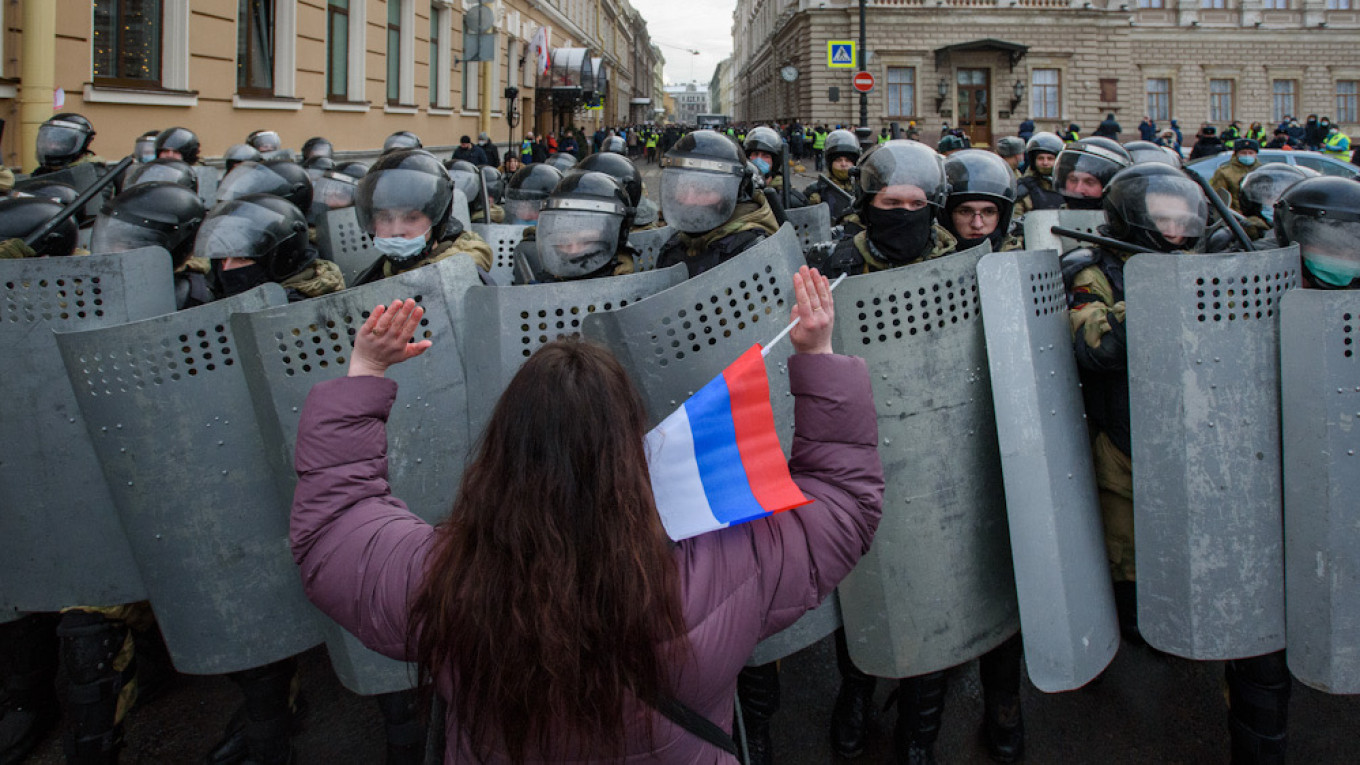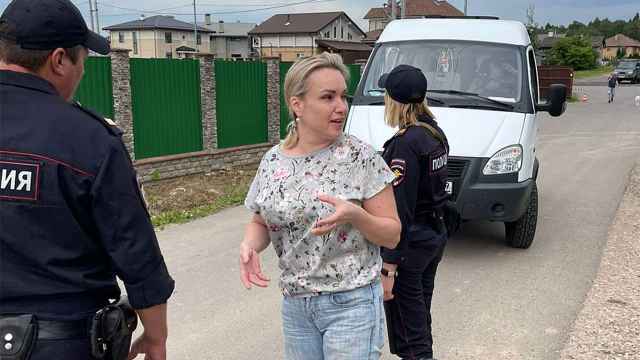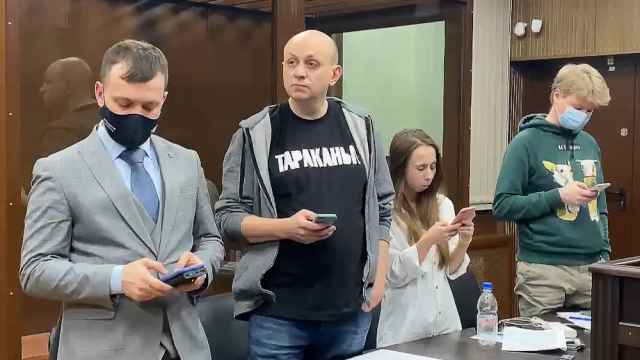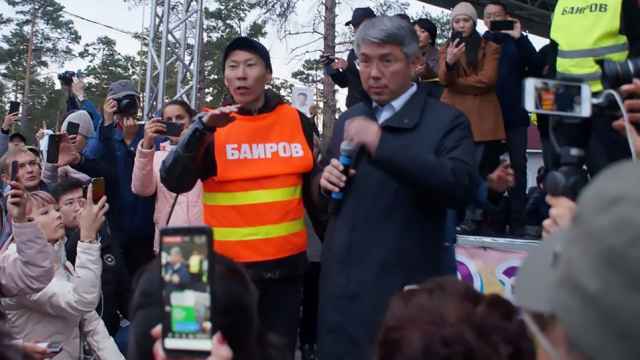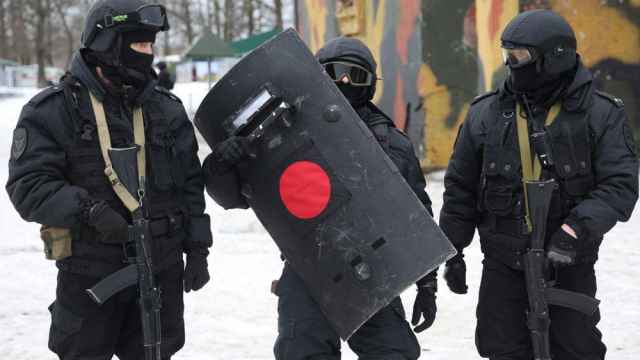Russia’s National Guard will train journalism students to safely cover mass protests, a senior lawmaker said Wednesday.
The lessons will be organized after the detentions of and use of force against dozens of journalists at mass nationwide rallies in support of jailed Kremlin critic Alexei Navalny earlier this year. Moscow’s police chief earlier Wednesday defended his subordinates as acting legally “against offenders who committed crimes at unauthorized rallies.”
According to Interfax, Russian lawmakers backed a proposal from the dean of Moscow State University’s journalism faculty to conduct seminars for her students on how to behave at mass protests.
Interfax reported that National Guard commander-in-chief Oleg Plokhoy said he was ready to dispatch press officers to help future journalists “analyze specific situations” and stay safe while covering the events.
One of his proposals, according to the state-run TASS news agency, is to set up “some kind of perimeter, relatively speaking, that a journalist shouldn’t breach to approach a law enforcement officer.”
Alexander Khinshtein, who chairs the lower house of Russian parliament’s information policy committee, reportedly said the National Guard stood ready to explain safety measures to students.
“It gets out of hand when journalists are practically hanging on the arms of the special forces or anti-riot police,” Khinshtein was quoted as saying.
Nearly 100,000 protesters took to the streets across 150 Russian cities in late January and early February in support of Navalny and against Russia's ruling elite. A Moscow court sentenced Navalny to two and a half years in prison last month for violating parole while he was recovering from a near-fatal poisoning in Germany.
Some 12,000 demonstrators were detained at the rallies, at least two of whom have been convicted on charges of using violence against authorities.
A Message from The Moscow Times:
Dear readers,
We are facing unprecedented challenges. Russia's Prosecutor General's Office has designated The Moscow Times as an "undesirable" organization, criminalizing our work and putting our staff at risk of prosecution. This follows our earlier unjust labeling as a "foreign agent."
These actions are direct attempts to silence independent journalism in Russia. The authorities claim our work "discredits the decisions of the Russian leadership." We see things differently: we strive to provide accurate, unbiased reporting on Russia.
We, the journalists of The Moscow Times, refuse to be silenced. But to continue our work, we need your help.
Your support, no matter how small, makes a world of difference. If you can, please support us monthly starting from just $2. It's quick to set up, and every contribution makes a significant impact.
By supporting The Moscow Times, you're defending open, independent journalism in the face of repression. Thank you for standing with us.
Remind me later.


